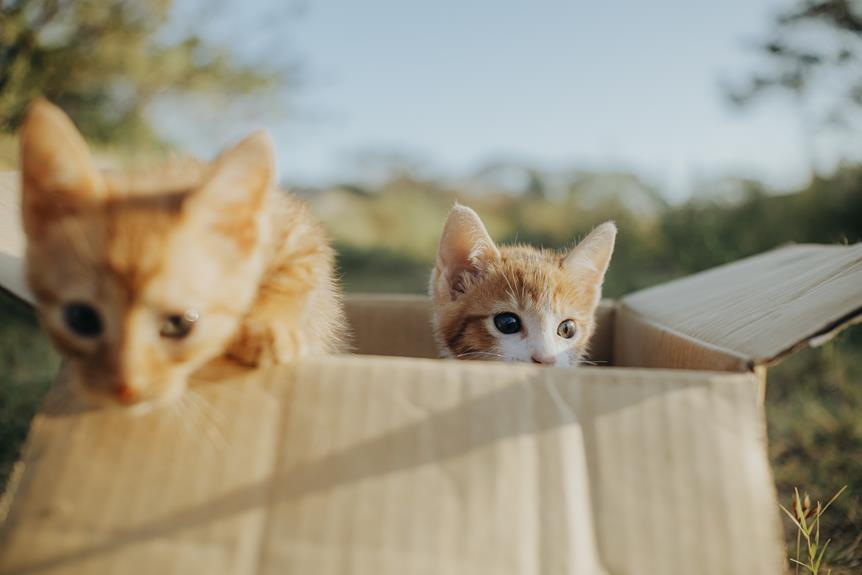Have you ever worried about snakes coming onto your property and wondered if cats can help deter them? You’re not alone—many people have similar concerns.

But can cats really help keep snakes away? In this article, we’ll take a look at the relationship between cats and snakes, the potential dangers of cats hunting snakes, and tips for deterring snakes without involving cats.
We’ll also explore facts about snakes and how to protect yourself and your pets from these creatures.
Join us as we explore the answer to the question: can cats keep snakes away?
Table of Contents
Will Cats Keep Snakes Away? Key Takeaways
- Cats can help control the snake population by hunting and killing snakes, as well as competing with them for food.
- However, cats face risks when hunting snakes, including snake bites from both venomous and non-venomous snakes.
- The safest way to protect cats from snake encounters is to keep them indoors.
- To prevent snakes from entering your property, focus on creating an unwelcome environment for snakes by maintaining short grass, trimming trees and bushes, and sealing any potential entry points in your home.
Cats and Snakes
You may be wondering if cats can help keep snakes away. Cats have a wary respect for snakes as fellow predators and are known to hunt them. In terms of pest control, cats can be a natural snake repellent and deter snakes from your yard.
As natural predators, cats can hunt and eat snakes, and their presence can help to keep snakes away. However, they can also put themselves in danger if the snake is large or venomous.
Home remedies such as cutting the grass short and encouraging natural predators like owls and hawks can also help with snake control.
Cats may not be the most reliable form of pest control, but they can be a valuable asset in keeping snakes away.
Dangers of Cats Encountering Snakes
You may be aware of the dangers cats face when encountering snakes, but it’s important to understand the risks before relying on cats as a form of snake control.
Cats have a wary respect for snakes as fellow predators, and cats are known to hunt snakes that try to escape unnoticed. If unable to escape, snakes may hiss and rear up in defense.
Cats may be drawn to the movement of a snake’s body and instinctively hunt them, and the presence of cats can discourage snakes due to competition for food. Cats can also physically hunt and kill snakes, however, cats can become prey to larger snake species like boa constrictors.
Not all cats have the skills to take on other predators, and indoor cats may lack experience in fighting snakes. Snake bites can cause problems for cats, even if the snake isn’t venomous. Venomous snake bites can make cats sick or even be fatal.
Therefore, preventing snake encounters is the best way to ensure your cat’s safety, and using natural predators, snake repellents, and sealing entry points are all important factors to consider when keeping your cat safe from snakes.
Prevention Tips Without Involving Cats
You can also protect your home and family from snakes without involving cats by taking certain preventive measures. This can work to keep snakes away and control their behavior in a natural way.
- Cut the grass short to discourage snakes from settling in as they prefer dark, well-covered areas.
- Keeping rodents away reduces the snake’s food source.
- Encourage natural predators such as owls and hawks to hunt snakes and keep them away.
- Seal entry points in buildings to prevent snakes from entering.
- You can also use snake repellents or barriers to keep snakes away.
It’s important to understand snake behavior and take preventive measures to minimize the risk of encountering snakes. Proper training and education on snake handling is essential for everyone’s safety.
Snake Facts and Dangers
Knowing the facts about snakes and the potential dangers they pose is important for keeping your family and pets safe.
Snakes are found in various habitats and can be a threat to humans and cats. Venomous snakes can cause serious health complications if not treated promptly. Non-venomous snake bites can also lead to infection and pain.
Cats may hunt snakes if they’re present in the home, putting their own health at risk. To protect cats and people from snakes, it’s important to understand snake behavior and take preventive measures.
Keeping rodents away can reduce the snake’s food source while cutting the grass short can discourage snakes from entering your home. Natural predators like owls or hawks can also help deter snakes.
If you encounter a snake, seek professional help, as mishandling snakes can lead to accidents and injuries. Keep your cats safe by keeping them indoors, as indoor cats have a lower risk of encountering snakes.
Utilize these tips to provide a safe environment for your family and pets.
Frequently Asked Questions
Are All Outdoor Cats at Risk of Encountering Snakes?
Yes, all outdoor cats are at risk of encountering snakes. It’s important to take preventive measures to keep them safe, like cutting the grass short and sealing entry points. Be aware of the dangers, and if needed, seek professional help with snake encounters.
How Can I Make My Yard Less Attractive to Snakes?
To make your yard less attractive to snakes, create an unwelcoming environment by trimming trees and bushes and keeping grass short. Additionally, seal off cracks in your home’s foundation and store food properly to prevent rodents from coming near.
How Can I Tell if a Snake Is Venomous or Not?
To tell if a snake is venomous, look for signs like a triangular-shaped head, a pit between eye and nostril, and a thick body. Don’t approach the snake—seek professional help for identification.
What Should I Do if My Cat Has Been Bitten by a Snake?
If your cat has been bitten by a snake, seek immediate medical attention. Monitor your cat for signs of infection or venomous effects. Be aware of the risk of snake bites for outdoor cats and take necessary precautions to protect them.
What Are the Signs of a Snake Bite in Cats?
Signs of a snake bite in cats include puncture wounds, swelling, pain, lethargy, and changes in breathing. Seek medical attention immediately if you suspect your cat has been bitten.
My name is Ben and I am a cat lover. I’m not a professional writer or a doctor or an expert of any kind on anything. But I am a guy who likes to share what little knowledge and experience I have with others.
